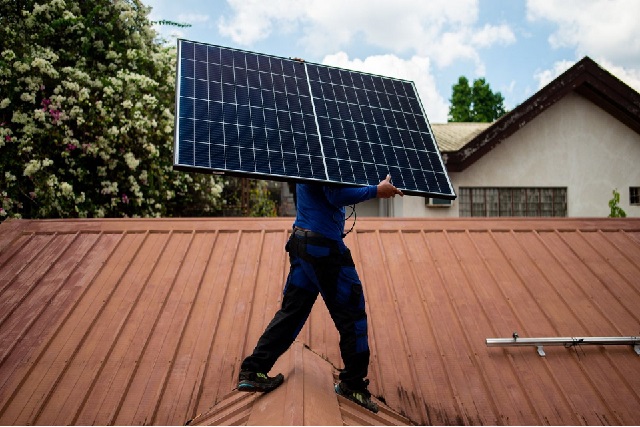
How Much Do Solar Panel Cost: 2025 Pricing Guide
Solar energy represents the way forward in a world aware of its need for sustainable energy sources. This cognizance is evident in the widespread adoption and installation of solar panels throughout Australia (about one in four homes has solar panels in the country, and this number keeps growing, with 362,000 installations reported last year). Therefore, understanding the solar panel costs can help you make more informed decisions as you consider switching.
Besides environmental concerns, switching to solar energy lowers your utility costs, particularly as living costs continue to skyrocket.
This comprehensive solar panels cost 2025 pricing guide will be valuable if you’re interested in investing in solar energy systems.
Table of Content
Overview of Solar Panel Cost
Initially, solar panel costs were the key barrier to entry for those seeking to switch to solar energy. However, technological advancements and significant increases in demand are making solar power systems more affordable in terms of initial cost and repayment considerations.
2025 solar panel pricing will further evolve with technological advancements and the expanding market competition. Solar panels are typically priced per watt. As per industry predictions, the average cost in Australia in 2025 is $0.98 per watt.
Factors Affecting Solar Panel Prices
Several factors contribute to the total cost of solar panels:
- Quality of Solar Panels: Premium, standard, and budget panels exist. The prices vary accordingly.
- Equipment Choices: Costs depend on additional equipment such as inverters, mounting hardware, and battery storage units.
- Installation Costs: Professional installations require labour costs, operational expenses, and permitting fees.
- Location & Size of Your Home: The cost also depends on the size of your home and its location due to varying installation complexities and local permit costs.
Breakdown of Pricing Estimates
Based on the overall costs, here’s an approximate breakdown of a typical residential solar system:
- Solar Panels: A high-quality 1.5KW system may incur costs between $1,500 and $3,000. Comparatively, you will need $6,000 to $12,000 to purchase a 10KW system.
- Inverter: Inverters are typically priced between $1,000 – $2,000 (or 20% over the cost of the panels). However, you may opt for budget inverters to save on costs. This option may be about $700 cheaper.
- Installation Cost: These mostly range between $3,000 – $5,000.
- Additional Costs: This involves permitting fees, inspections, and extra equipment, typically $500 – $2,000.
So, the total cost (without considering any incentives or subsidies) could be approximately $20,000 to $24,000.
The Decreasing Trend
Experts estimate that solar panel prices have dropped by over 70% in the last decade. So, if you plan to install solar panels in 2025, the pricing might look surprisingly reasonable compared to previous years.
Government Incentives and Tax Breaks
The Australian federal government and many state governments offer generous incentives and tax breaks to help offset the initial installation costs of solar panels. For instance, federal solar tax credit rebates are available to homeowners whose combined taxable income is less than $180,000. However, this incentive is set to expire by the end of 2030.
To get a complete overview of what is available through governmental assistance, take a look at the Small-scale Renewable Energy Scheme (SRES). This document gives more information on the program’s scope, applicant eligibility and necessary forms and requirement guides.
Conclusion
With all this considered, it looks like 2025 might be one of the best times to go solar. Solar energy is a significant investment, but the cost-savings and environmental benefits can offer great value over time. As always, it’s crucial to consider all these aspects as you plan to invest in a solar power system. This guide provides an accurate estimate, but prices can vary based on individual configurations, locations, and vendor choices.
Additionally, it is best to have professional input into your selection and installation process. Therefore, don’t hesitate to contact an expert solar installer and retailer for guidance.


